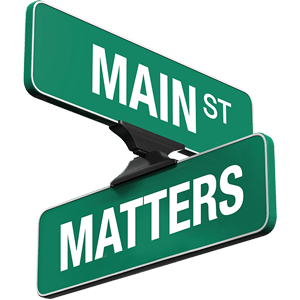When autocomplete results are available use up and down arrows to review and enter to select.
Find out what's happening in communities across America, from grassroots advocacy efforts, to fintech innovations and everyday successes of Main Street banks.

By Tina Giorgio
 The impacts of COVID-19 have echoed far and wide, but perhaps no segment has felt the daily struggles more than small businesses. From having to adapt to retail closings, diminished staff and customer capacities, a new work-from-home infrastructure, and more, the nation’s small businesses have reacted quickly in the wake of the pandemic, taking already lean operations and getting creative to stay afloat.
The impacts of COVID-19 have echoed far and wide, but perhaps no segment has felt the daily struggles more than small businesses. From having to adapt to retail closings, diminished staff and customer capacities, a new work-from-home infrastructure, and more, the nation’s small businesses have reacted quickly in the wake of the pandemic, taking already lean operations and getting creative to stay afloat.
Banks and the government have stepped in to help, with more than 5.2 million Paycheck Protection Program (PPP) loans disseminated to cover short-term employee costs. But these loans have supported only a portion of the business.
With accounts payable still cycling in and receivables moving more slowly, an enormous urgency has emerged around flow and timing of payment. In fact, 76 percent of small businesses have cited cash flow shortages. Another 37 percent have reported dipping into personal funds to hold them over in recent months.
Community banks who are equipped to help their customers weather the storm can further cultivate their relationships with these valued customers using payments as the linchpin for that effort.
Because payments provide a desired solution in both the short- and long-term, they constitute a strategic offering for community banks. Take small business credit cards, for example. Total business to business physical card payments were estimated at $1.2 trillion in 2019.
And though they are relatively new, virtual cards showcased $400 billion in annual transactions that same year and are projected to grow by 90 percent over the next few years, with usage passing $1 trillion by 2022.
Though cards offer one solution, today’s small businesses are looking for more than just single services. They want a suite of online solutions to meet their individualized needs. In fact, 81 percent consider robust digital banking capabilities to be important, including the overall digital experience, online and mobile functionality, and online account-opening capabilities. In addition, another three-fourths cite flexible digital payments options as either important or very important in selecting a bank partner.
Clearly, payments have become an increasingly central product line for community banks as they work to strengthen their small business relationships. That’s why we’ve expanded upon the work we did with Aite Group to develop the second ICBA Bancard Digital Payments Strategy Guide℠—Small Business Edition customizing it for this important customer segment. This tool assesses your bank’s small business payments readiness by evaluating:
Answering these questions help community banks identify small business payments maturity—developing, emerging, strategic, or market leading. With this information, community banks can create a realistic roadmap with actionable steps to capture the small business market within their community.
Small business customers are looking to community banks for the advice they need to remain in business. Beyond loans, it is about helping them to identify ways to enhance their cash flow by leveraging digital payments solutions.
Now’s the time to dive deeper with current and potential small business customers—for your bank’s sake as much as theirs. Because, as we navigate this new norm, it’s never been clearer: the bank that owns the payments owns the customer relationship.
ICBA Bancard clients enjoy exclusive access to the new ICBA Bancard/Aite Group report “The Small Business Digital Payments Strategy for the Community Bank” and complementary Small Business Digital Payments Strategy Tool until Nov. 9 when it will be made available to all ICBA member banks.
Tina Giorgio is president and CEO of ICBA Bancard.